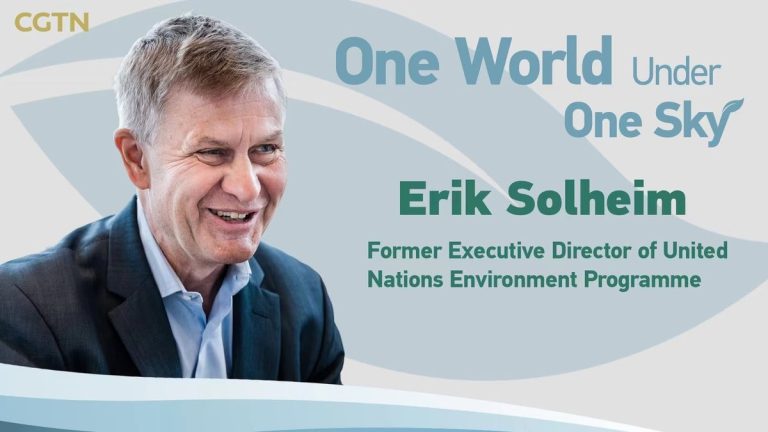Imagine a world where technology and environmental policy converge to shape a sustainable future. In an insightful conversation, Erik Solheim, former head of the United Nations Environment Program (UNEP), shares his vision on how the global community can confront the pressing challenge of climate change. Through a career dedicated to environmental advocacy, Solheim's views highlight the urgent need for global cooperation and innovative use of technology in our pursuit of sustainability. This narrative explores crucial points from Solheim's exclusive interview, providing a roadmap for navigating the complexities of modern-day conservation.
The power of unity and innovation
At the heart of the interview, Solheim stresses the importance of… Global cooperation And the effective role Technological innovation Plays in pushing environmental agendas forward. He points to various success stories around the world where innovative policies and cutting-edge technologies have led to noteworthy environmental improvements. From the deployment of renewable energy solutions to advances in waste management, these examples serve as beacons of hope, demonstrating that significant progress can be achieved when countries come together to share knowledge and resources.
Building a strong political and economic framework
However, Solheim is not shy about tackling obstacles on the path to a greener economy. He stresses the necessity Stronger political will And formation A partnership between the public and private sectors As pivotal elements to accelerate the transition process. The discussion also moves toward the role of education and public awareness in developing a culture that prioritizes environmental stewardship. Solheim is optimistic about creating green jobs, seeing them as a cornerstone of economic recovery and growth, especially in the wake of the COVID-19 pandemic. He believes that by weaving environmental sustainability into the fabric of economic renaissance strategies, we can ensure a resilient and sustainable future.
The intersection of technology, politics and the environment
Returning to the broader implications of technological progress on environmental policy, a recent study delves into how innovations in robotics and artificial intelligence can play a pivotal role in the fight against climate change. This research reflects Solheim's views, and highlights the double-edged sword of technology: its ability to exacerbate or mitigate environmental challenges. The study calls for carefully designed policies that take advantage of the positive effects of the development of robotics and artificial intelligence, especially in reducing carbon emissions. The Solheim Dialogue complements these findings, calling for a harmonious mix of technology and policy to address the multifaceted nature of environmental issues.
In his talk, Erik Solheim provides a compelling narrative that navigates the complexities of global environmental challenges. His ideas remind us of the power of collective action, the promise of technological innovation, and the essential role that informed policies play in securing a sustainable future. As we stand at the crossroads of environmental conservation and technological progress, Solheim's views provide a valuable guide for the journey ahead.

